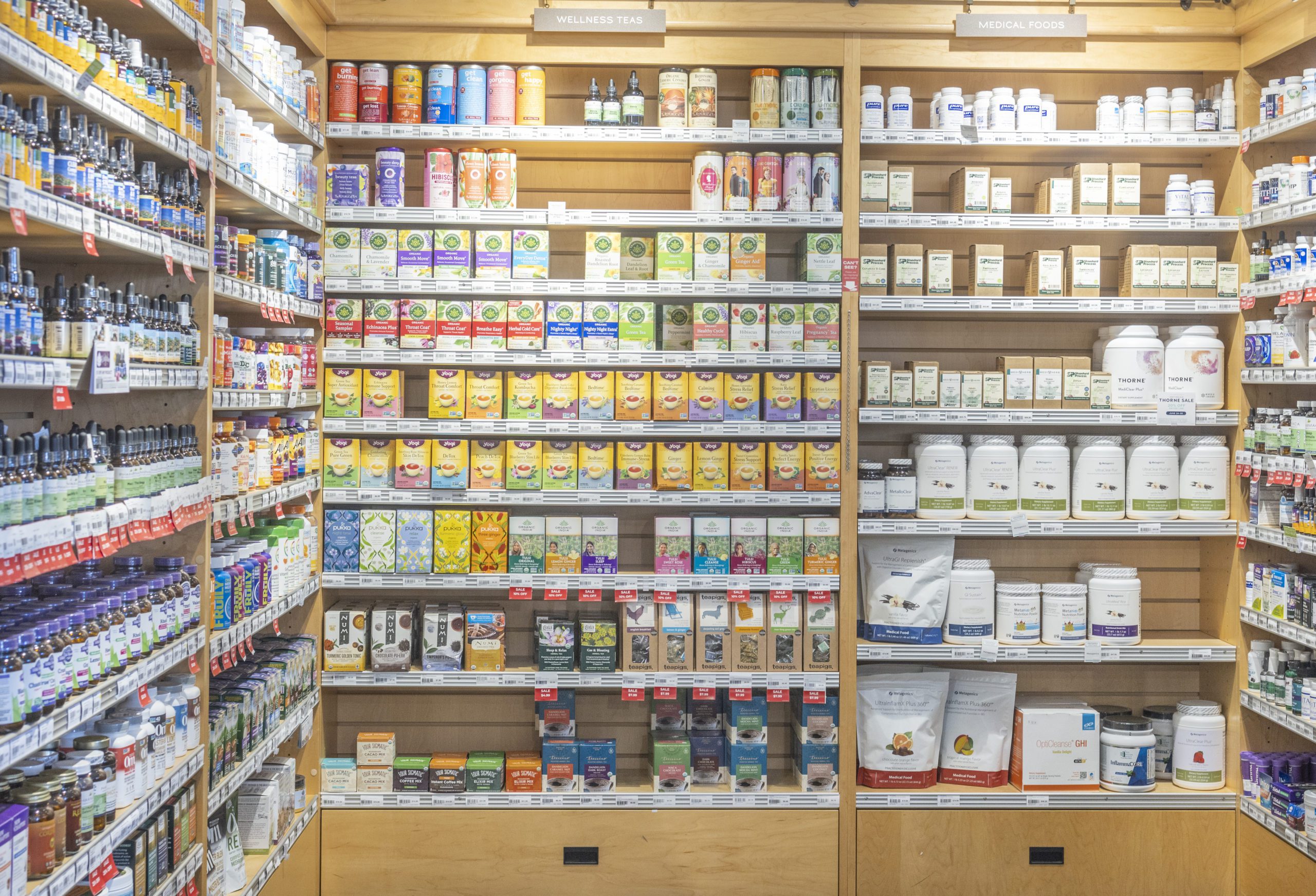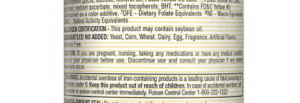Vitamin manufacturers put disclaimers and other information in teeny, tiny print, or use scientific, incomprehensible language to describe pretty serious things, like how your head might fall off if you take their product with grapefruit. (Okay that’s exaggerating, but you get it.) This, as you know, is called the fine print. Here’s what we think about it.
Manufacturers put fine print disclaimers on labels because they are required to by the FTC. Unfortunately, this is often the only place on a label where you can find the most important information about the products you’re taking, which is: Consult with a doctor.

- Can you read this? This label has some serious warnings about liver toxicity.
In, “Mixing Medications and Dietary Supplements Can Endanger Your Health,” the FDA warns consumers about potentially harmful combinations of pharma drugs and supplements, for example “…warfarin (a prescription blood thinner), ginkgo biloba (an herbal supplement), aspirin, and vitamin E (a supplement) can each thin the blood. Taking any of these products together may increase the potential for internal bleeding or stroke.” This is very concerning, and guaranteed not every product containing vitamin E or Ginko has this warning on the label.
So, what do you do?
Doctors and the Proof Gap
Any doctor, should you consult them, would share the above information with you, provided you disclose to them every single supplement you’re taking, which not all doctors even ask. The responsibility falls on you to remember to mention this at every visit, which for most people is only once or twice a year. You can also talk to a pharmacist, being sure to list any supplement you’re taking or thinking of taking.
But let’s say you visit your doctor and tell her that you want to take a supplement for a non-disease reason, for example to help with your feelings of mild anxiety? She won’t likely recommend a supplement to you. Why? Because doctors don’t have proof that the natural products really work. And they mistrust the entire industry. This is why they default to pharma products for their patients. Pharmaceuticals are tested, therefore, to a doctor, they’re safer.
We call this the Proof Gap in the supplement industry. Most supplement manufacturers can’t spend a million dollars on clinical trials for a product or ingredient available anywhere to anyone. But without proof, doctors don’t trust natural products. And insurance companies won’t pay for them.
In the AMA Journal of ethics “Which Features of Dietary Supplement Industry, Product Trends, and Regulation Deserve Physicians’ Attention?” The author concludes that doctors don’t trust the supplement industry due to lack of proof and irresponsible labeling, and feel the need to educate patients as to how to read the fine print on labels.
This means that even if you consult your doctor, she won’t recommend a supplement. She might warn you against it, even if it doesn’t have any negative interactions with other drugs or supplements you might already be taking.
How do you know a supplement is safe, aside from possible negative drug interactions?
Until Radicle Science tests every single product out there (we are working on it!) you can look for certain certifications on your supplement labels that ensure the product is free from pesticides or harmful metals, ethically sourced, and has been tested for potency, or dosage. See the infographic below that contains several clean label certifications you can look for. (We will explain these in more detail in our next post.)
Back to the fine print on your supplement labels.
Here is where we stand on the fine print. The supplement industry has an ethical responsibility to be transparent and honest about their labels.
Regulations and policies aren’t an obligation to be buried in teeny font. Those disclaimers are there to protect you, the consumer. The industry needs to respect regulations and be ethical in how they present their products to you. Supplements need to clinically prove the claims they make about their products and submit their products to independent testing labs to make sure that every batch is pure, and the dosage that they put on the label is accurate.
If they lead with this, policies, doctors, insurance companies and you, the customer, will trust them. The brands we partner with to do our studies absolutely share in this mission, which is again, why your volunteering is crucial for science and for transforming the supplement industry!
Are you interested in helping us in our mission to close the proof gap? Volunteer for one of our studies by signing up for our list! They are easy and fun, plus you can try products for six weeks, and get a report at the end of the study that tells you whether or not the product really worked for YOU!
hbspt.forms.create({
region: “na1”,
portalId: “9251305”,
formId: “4bd35be1-200b-4378-b2d2-fb5b3c1d362c”
});



